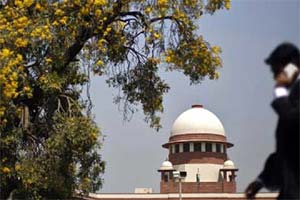The fight between the two Indian confectionery companies — Britannia Industries and Parle Products Pvt Ltd — over designs in respect of biscuit packets reached the Supreme Court, which on Monday set aside the Calcutta High Court order that had last year cancelled the design registration of Parle without assigning any “cogent reasons”.
A bench headed by Justice Ranjan Gogoi while quashing the HC order remanded the matter back to it. It did so in view of the fact that the HC had based its finding on the visual comparison which is not permissible when the Design Act contemplates seeking an expert opinion.
Confectionary and bakery product manufacturer Parle told the apex court that the HC failed to consider that the distinction between the two registered designs are in the side seals, the biscuit packets were novel and even the method of making the packets had been separately protected by a patent.
“The HC failed to consider that the aesthetic features of the biscuit packets and the special design feature like the packet does not have end seals. The advantage of the features is the absence of end seals related to the aesthetic and convenient placement of those packets on store shelves,” Parle said in its appeal filed through counsel Aniruddha P Mayee.
On the other hand, Britannia senior counsel Pratibha Singh argued that the Parle’s biscuit packets lacked novelty and were neither new nor original. Besides, Parle’s designs have already lapsed and have not been renewed, she added.
Parle, who had two registered designs in respect of biscuit packet, had in 2005 alleged that Britannia had infringed its design by using the same design in its packet of Britannia Marigold Double. However, Britannia on its part in 2006 had sought cancellation of the Parle’s design before the Controller of Patents and Designs, which rejected the plea on various grounds including the design is not a new or original design.
Britannia had challenged the order in the HC which had returned two design registrations for biscuit packets (registered by Parle circa February 2002) to the Designs Office for reconsideration, observing that it was “evident” that the Office had not taken into account the prior publications submitted by the opponent in their cancellation petitions.
